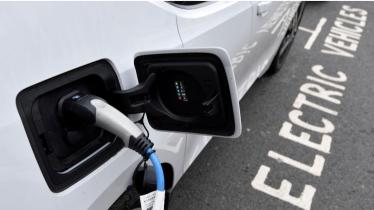By Ankith Hebbar P and Vandana Nair
In recent years, there has been a lot of buzz around buying an EV. The major reasons cited for an EV transition include savings on fuel expense and reduction of greenhouse gas emissions. Although these are notable reasons, the question persists — can EVs offer something substantial to the nation as a whole in the coming decades?
India’s auto industry, estimated to be valued at $115 billion, contributes around 7% to the overall gross domestic product (GDP), employing 30 million people. In 2023, it accounted for over 4% of exports, with the components sector export alone being valued at $20 billion. Our analysis anticipates a 50% increase in exports and a rise in the workforce to 100 million, with a sectoral growth of nearly $200 billion, by 2030. Additionally, EV transition will ensure that this growth remains relevant in the long term considering global climate targets.
Although China leads in EV production, India excels in making competitive two-wheelers, both petrol and electric. As per a Market Insights report by Statistica, Indian two-wheeler brands have around 8% market share in South America, and automotive journalists perceive India as being on par with its Japanese counterparts in the African market. Japanese and Western automakers view India’s supply chain, business environment, and local talent pool as an ideal location to develop a global export hub. This is evidenced by their commitment of billions of dollars to setting up manufacturing in India for the export market.
Our assessment indicates that India has the potential to secure a significant share of a $50–100 billion market in emerging economies (South America, Africa, and Southeast Asia) by serving as an export hub for global automakers or as a supplier of automobiles and auto components.
With a population of over 1.4 billion, India has the largest addressable market for automobiles. However, India trails China in EV battery prices and technology. To bridge the gap, India should prioritise its domestic market, leveraging its large population for economies of scale. This could make domestic batteries and EV components competitive with Chinese ones, positioning India as a key supplier for automakers in the domestic, Western, and emerging markets, thus augmenting its global EV supply chain share.
Also read: Top 6 most affordable electric cars in India
With only about 5% – 6% market penetration of EVs, market research shows that India already has over 1,200 startups in the electric mobility space, 280 energy storage solution startups, and 30+ lithium-ion battery (LIB) recycling startups, despite related sectors being nearly non-existent and research and manufacturing being prohibitively expensive. Between 2020 and 2023, the inflow of investments into these startups has been to the tune of over $28 billion. Achieving the EV30@30 target could usher in a new era of economic development, leading to employment and investment generation, along with industrial and technological advancement.
Upcoming industries are involved in EV component, battery, and semiconductor manufacturing as well as battery recycling. Based on global trends in semiconductor output, we can expect 20% of the semiconductor manufacturing output to flow into the auto industry. It is conjectured that companies have so far announced investments in the range of $30–50 billion in the above-mentioned sectors. Several other allied industrial sectors and countless MSMEs, directly and indirectly, supporting these sectors are expected to crop up. The potential for growth and prosperity is substantial.
Along with these noticeable impacts on the economy, EVs can pave the way for a cleaner, more breathable local environment. We estimate that meeting the EV30@30 targets could result in the reduction of annual tail-pipe emissions of about 9,600 tonnes of NOx and 780 tonnes of PM2.5 in Delhi in 2030. Moreover, previous research indicates that the substitution of conventional vehicles with EVs could result in a decrease in the near-surface air temperature by 0.6℃.
EV transition will have a sizable impact on the established auto industry, startups, and MSMEs and their future at the global stage through value creation in terms of employment and technological advancement. Thus, it would be a missed opportunity to not transition sooner.
(The authors work in the area of Green Mobility at the Center for Study of Science, Technology and Policy [CSTEP], a Bengaluru-based think tank. Views are personal and not necessarily those of financialexpress.com.)
